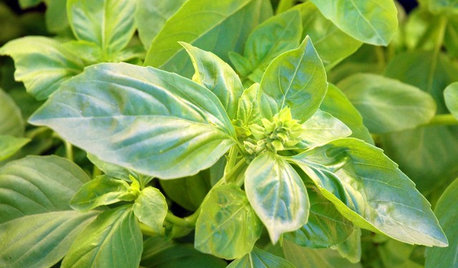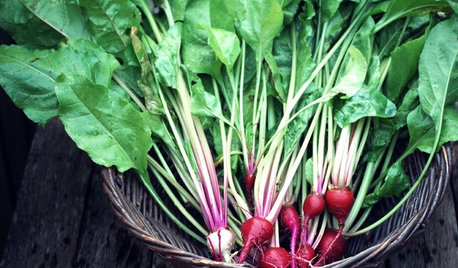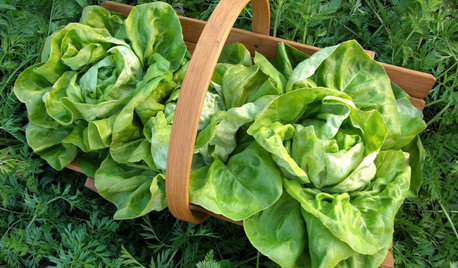organic mail order fertilizer suggestions for indoor herb garden
gametheory
13 years ago
Related Stories

GARDENING GUIDESHow to Switch to an Organic Landscape Plan
Ditch the chemicals for a naturally beautiful lawn and garden, using living fertilizers and other nontoxic treatments
Full Story
SUMMER GARDENINGHow to Grow Basil
Bright color, quick growth and endless uses for cooking make this summer annual a winner in the garden or a pot
Full Story
GARDENING GUIDESCommon Myths That May Be Hurting Your Garden
Discover the truth about fertilizer, soil, staking and more to keep your plants healthy and happy
Full Story
ORGANIZING21 Tips for Organizing Your Stuff
Restore order at home with these ideas for tidying up cupboards, shelves, doors and more
Full Story
HOUSEPLANTSSimple Pleasures: Grow a Cheery Indoor Garden
Let houseplants work their magic on your rooms and you. These ideas will get you growing
Full Story
HOUSEPLANTSBaby Tears Mimics Moss for a Green Accent Indoors
This adaptable spreader thrives in water or soil, making it a terrific addition to containers and living walls
Full Story
EDIBLE GARDENS8 Last-Minute Additions to a Summer Edible Garden
It’s not too late to get these vegetables and herbs planted for a bountiful harvest this year
Full Story
FALL GARDENING5 Ways to Put Fall Leaves to Work in Your Garden
Improve your soil and yard the organic way with a valuable garden booster that grows on trees
Full Story
HOUSEPLANTSPlay Up Some Fiddleleaf Figs for a Lively Indoor Tune
Strike a dramatic chord in a minimalist scene or a country note in a rustic setting — fiddleleaf fig plants harmonize with any style
Full Story
GARDENING GUIDES10 Easy Edibles for First-Time Gardeners
Focus on these beginner-friendly vegetables, herbs, beans and salad greens to start a home farm with little fuss
Full StoryMore Discussions








gametheoryOriginal Author
rhizo_1 (North AL) zone 7
Related Professionals
Carlisle Landscape Architects & Landscape Designers · Chelmsford Landscape Contractors · Fishers Landscape Contractors · Hicksville Landscape Contractors · Las Vegas Landscape Contractors · Longview Landscape Contractors · Mission Landscape Contractors · West Covina Landscape Contractors · Lauderdale Lakes Landscape Contractors · Fort Lee Decks, Patios & Outdoor Enclosures · Fort Myers Decks, Patios & Outdoor Enclosures · Hampton Bays Decks, Patios & Outdoor Enclosures · Hyattsville Decks, Patios & Outdoor Enclosures · Pittsburgh Decks, Patios & Outdoor Enclosures · Randolph Decks, Patios & Outdoor Enclosuresgardengal48 (PNW Z8/9)
tapla (mid-Michigan, USDA z5b-6a)
gametheoryOriginal Author
gametheoryOriginal Author
DrHorticulture_
tapla (mid-Michigan, USDA z5b-6a)
gametheoryOriginal Author
tapla (mid-Michigan, USDA z5b-6a)
gametheoryOriginal Author
tapla (mid-Michigan, USDA z5b-6a)
rhizo_1 (North AL) zone 7
tapla (mid-Michigan, USDA z5b-6a)